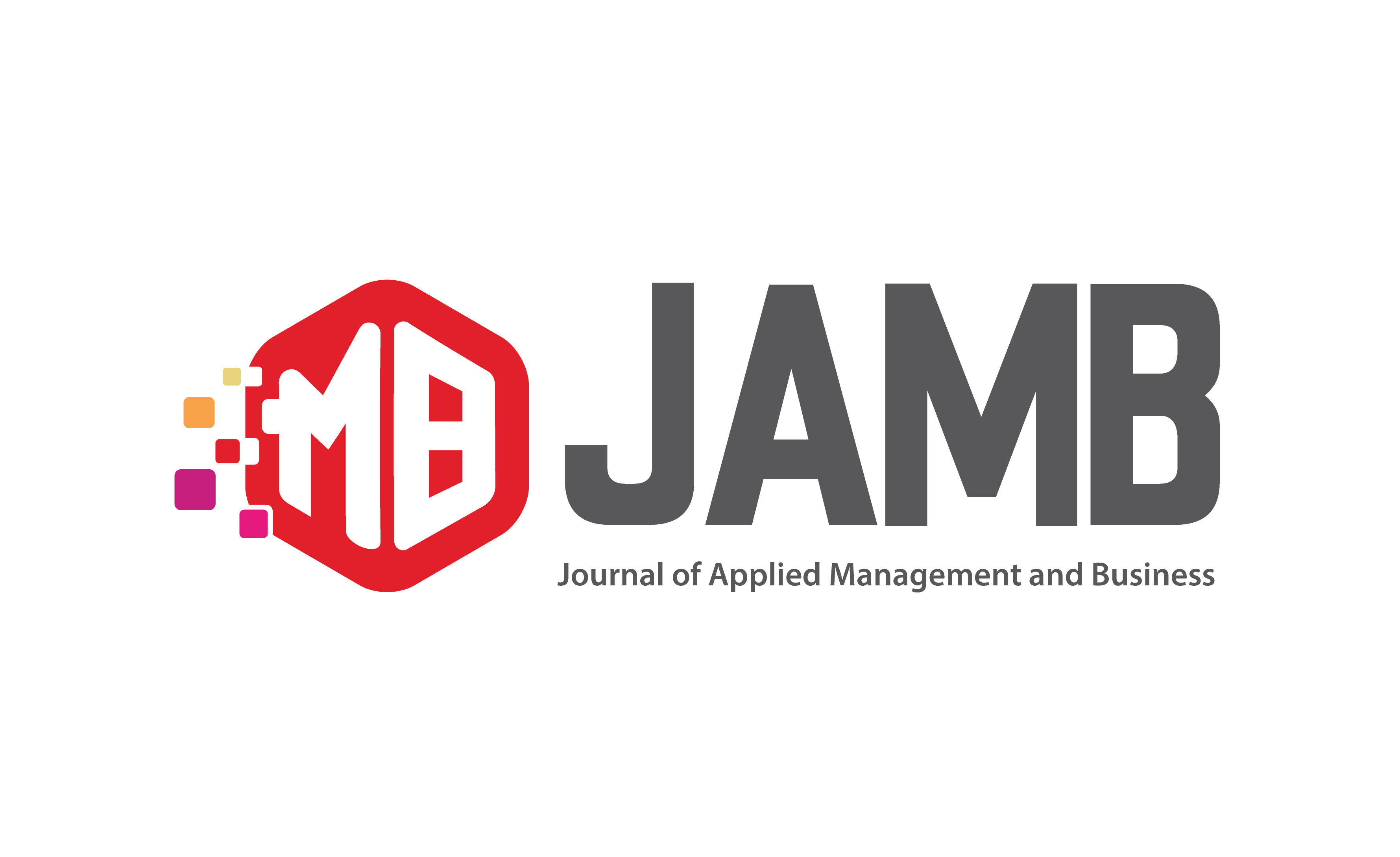SELF-EFFICATION AS THE DETERMINANTS FOR THE INTENTION OF ENTREPRENEURSHIP
DOI:
https://doi.org/10.37802/jamb.v1i2.143Keywords:
Intention of Entrepreneurship, Self EfficacyAbstract
This examination intends to decide: (1) The degree of self-adequacy of undergraduate management study programs in Surabaya, (2) The degree of enterprising expectations of undergraduate management study programs in Surabaya, (3) The impact of self-viability on undergraduate management study programs in Surabaya. The number of population in this examination is the undergraduate management study programs in Surabaya. The testing system utilizes Proportionate Stratified Random Sampling and acquired an example of 167 undergraduate management study programs in Surabaya. The instrument preliminary utilized master judgment and proceeded with preliminaries on 30 undergraduate management study programs in Surabaya. Validity test in this research utilizes the Product Moment connection method from Pearson. Unwavering quality test utilizing the Cronbach Alpha. Information gathering utilizes a survey that is dispersed straightforwardly and through electronic media. The investigation essential testing incorporates typicality test and linearity test. The information investigation method utilized is straightforward relapse to test theories.
Downloads
References
[2] M. Bagheri and H. Khorrami, “Evaluating Human Factors in customer Relationship Management (Case Study: Private Banks of Shiraz City),� Procedia Econ. Financ., vol. 36, no. 16, pp. 363–373, 2016, doi: 10.1016/S2212-5671(16)30048-X.
[3] M. Y. Anshori, D. F. Karya and F. Irhamni, “Team Learning, Team Performance, Entrepreneurial Intention, and Self-Regulated Learning in Entrepreneurship Education of UNUSA Students,� International Council for Small Business World Conference Proceedings, 2019.
[4] Santoso, R., Shinta, R., & Fianto, A. Y. A. (2019). Pengaruh Bauran Pemasaran Jasa terhadap Keputusan Berkunjung ke Wisata Bahari Jawa Timur. Jurnal MEBIS (Manajemen dan Bisnis), 4(2), 73-86.
[5] Fianto, A. Y. A. (2020). Satifaction as intervening for the antecedents of intention to revisit: Marinetourism context in East Java. Relasi: Jurnal Ekonomi, 16(1), 179-207.
[6] Zhang, P., & Cain, K. W. (2017). Reassessing the link between risk aversion and entrepreneurial intention: The mediating role of the determinants of planned behavior. International Journal of Entrepreneurial Behavior & Research, 23(5), 793–811.
[7] Newbery, R., Lean, J., Moizer, J., & Mohamed, H. (2018). Entrepreneurial identity formation during the initial entrepreneurial experience: The influence of simulation feedback and existing identity. Journal of Business Research, 85, 51–59.
[8] Smith, S., Hamilton, M., & Fabian, K. (2019). Entrepreneurial drivers, barriers and enablers of computing students: Gendered perspectives from an Australian and UK university. Studies in Higher Education, 28, 1–14.
[9] Oguntimehin, Y., Abiodun, O., & Oyejoke, O. (2017). The relationship between entrepreneur education and students’ entrepreneurial intentions in Ogun State universities, Nigeria. British Journal of Education, 5(3), 9–20.











